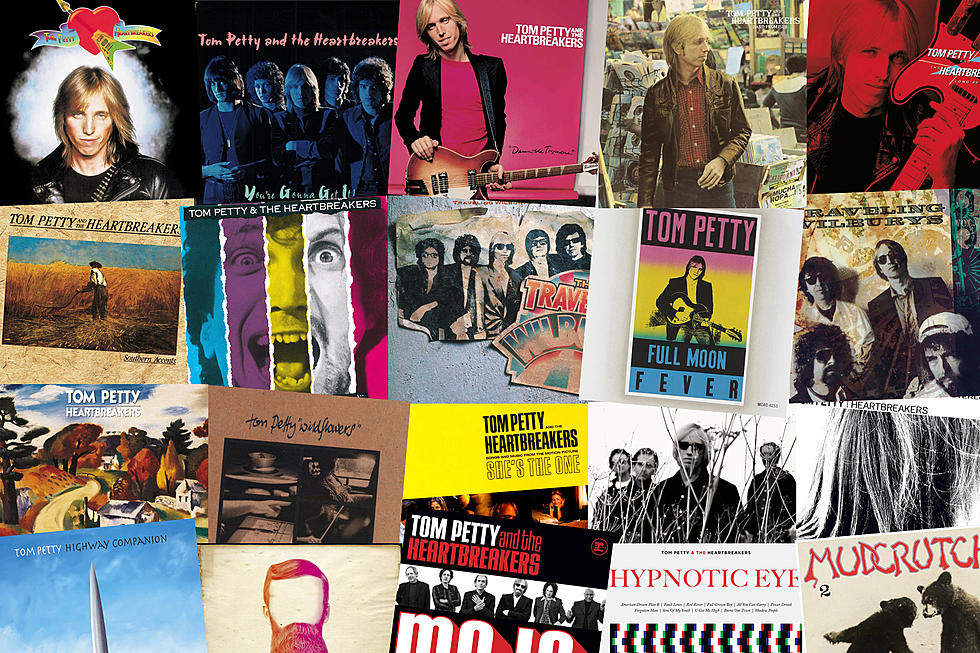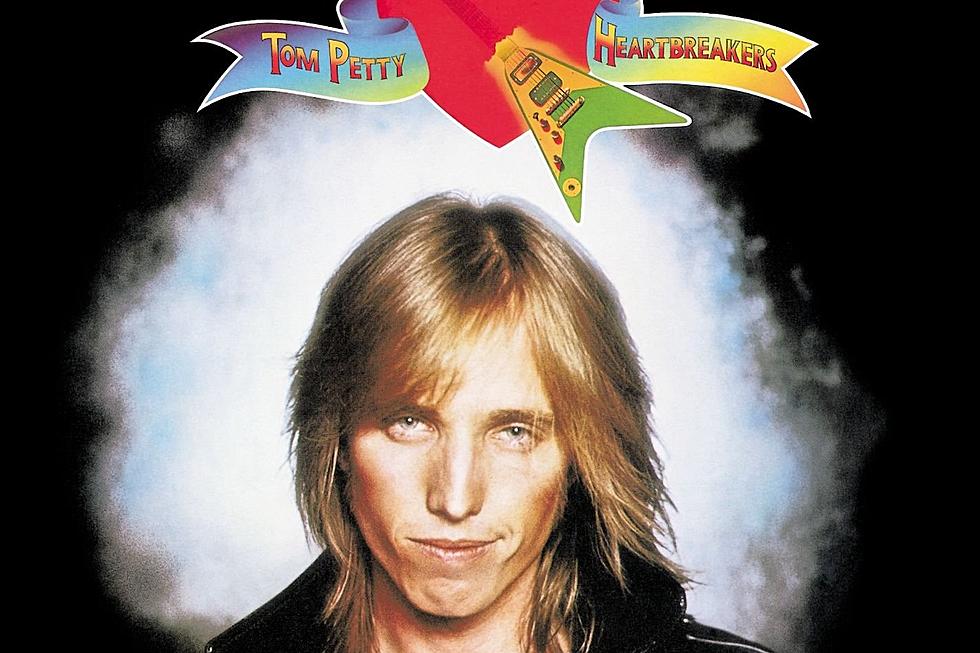
How Tom Petty Belatedly Rediscovered His Roots on ‘Mojo’
There was never any arguing Tom Petty's status as one of the world's biggest rock stars as the '90s wore into the aughts, but he did seem to be suffering from a certain creative drift. To pull himself out of that rut, he needed to rediscover his roots.
That process started, quite literally, with the unexpected reunion of Petty's old band, Mudcrutch, which had fallen apart after releasing one single in 1975. While getting the group back together wasn't as difficult as it could have been — Mike Campbell and Benmont Tench, both of whom were long-tenured members of Petty's band the Heartbreakers, were also in Mudcrutch — the process of quickly writing and recording the band's self-titled 2008 effort reawakened something in his spirit.
"I don't think I'd be here with the Heartbreakers if I hadn't done that," Petty told Sound and Vision in 2010. "We didn't have even that much material when we started out. I had a couple of songs, maybe three, and we just had to whip them up and make it happen. The studio work went so well that I just thought, 'I can't possibly go back to any other way of working. It's too gratifying.' That was a real valuable musical lesson."
That lesson carried over to the sessions for the next Heartbreakers record, which started in the spring of 2009 at Petty's home studio. The first Heartbreakers album since the untimely passing of bassist Howie Epstein in 2003, it further exemplified the homecoming theme in Petty's music by marking the full-time return of Ron Blair, the group's original bass player.
Unlike the previous Petty and the Heartbreakers set, 2002's The Last DJ, the songs didn't really have any concept tying them together; instead, they were cut from the same bluesy musical cloth. More than perhaps any other Petty LP to that point, this collection — eventually titled Mojo — was a blues album.
"I'd say that part of what drew me here was, you know, when we played naturally. Like if there's no agenda at all, it's always blues," he explained in conversation with the Huffington Post. "I thought, well, let's work where we feel the most comfortable, and I really felt like we had sort of mined all the other things we'd done. I feel like we found somewhere to sit down for a while, like this is something where there's a lot to explore."
The Mojo sessions proved back to basics in more ways than one. Though Petty was certainly no stranger to layered production, for these tracks — cut with production assistance from Campbell and longtime band engineer Ryan Ulyate — they opted for a "live in the room" approach, using stage monitor amps and playing in a circle. It had a lot in common with the way the young artists of Petty's generation recorded when they couldn't afford to spend money on studio tricks or overdubs — and perhaps not coincidentally, playing like he was a kid helped Petty unleash a creative torrent. Mojo ultimately weighed in at 15 tracks and more than an hour in length, and whittling it down even that far required some painful cuts.
Listen to Tom Petty and the Heartbreakers' 'Jefferson Jericho Blues'
"We had such a great time doing it, we didn't really want to quit, you know? I felt really hot, like we could have done a lot more, but this tour was looming over our heads. We had to stop, but I'm just in love with recording right now," Petty continued during his talk with the Huffington Post. "I've never felt as proficient at it as I am right now. We did this without the use of headphones or separation — it was just all in the same room playing together. And it felt a little like a rehearsal feels, I guess. But I don't know ... it was just so much fun. I don't see why we would go anywhere else."
The majority of Petty's fans didn't seem to be clamoring for any kind of change in direction. Even though none of Mojo's singles really put much of a dent in the pop or rock charts — "I Should Have Known It" came closest, topping out at No. 40 at Mainstream Rock — the album itself sold solidly, peaking at No. 2, the highest mark for a Petty and the Heartbreakers release since Damn the Torpedoes in 1979.
For those who missed Petty's punchier, poppier fare from the '80s and early '90s, or appreciated the level of craft and labor he'd put into the Heartbreakers' earlier efforts, Mojo could admittedly feel frustrating — a set of songs that consistently smoldered while stubbornly refusing to flat-out burn.
Like much of what Petty had done since 1991's rather intricately produced Into the Great Wide Open, Mojo was a no-frills, somewhat shambolic affair — the sound of a band content to swagger now that it no longer felt the need to strut. For Petty, it was exactly the right record at exactly the right time.
"My music has always just come from where the wind blew me. Like where I'm at during a particular moment in time. This was something I have been thinking about for a long time," he told the Huffington Post. "It had been ages since we made a record, and there were times when I wondered if we'd ever make another one. If we were going to make one, all of us said, 'You know it's got to be something really good or there's no point in doing it.' So, we're all pretty pleased with ourselves right now."
That contentment manifested itself with a period of renewed activity for Petty and the Heartbreakers, starting with the exhaustive Live Anthology box they released in the fall of 2009 and continuing through a live Mojo tour album and the group's 13th studio LP, Hypnotic Eye, in 2014.
With a new Mudcrutch record slated for the not-too-distant future, Petty's artistic course seems set — having achieved every level of critical and commercial success he could possibly have dreamed of, he's thoroughly content to make the music he wants to make with the musicians closest to his heart.
"I didn't really anticipate us really doing it at this time in our lives," he admitted to the Washington Post after Mojo's release. But, he quickly added, "I still got music in my head, and I'm in this incredibly amazing rock 'n' roll band ... If we started to suck, we would all hang it up. But I think we're a long way from that."
Tom Petty's Heartbreakers: Where Are They Now?
The Importance of Tom Petty’s ‘Wildflowers’
More From Ultimate Classic Rock









